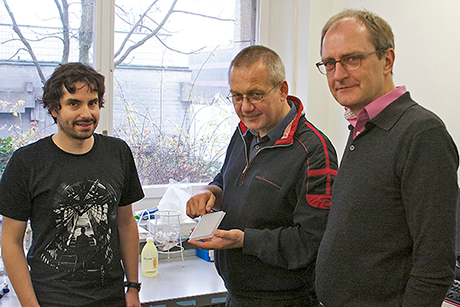TB drug and vaccine development
Tuberculosis (TB) caused by Mycobacterium tuberculosis is a major cause of morbidity and mortality worldwide. In 2023, TB claimed 1.25 Million lives and 10 Million new infections occurred. Mycobacterium bovis BCG – introduced as vaccine against TB a century ago is the most widely used vaccine in the world however it only confers limited protection against adult lung TB. TB therapy is based on a four-drug regimen applied for 6 months. The long lasting therapy and the spread of multi-drug resistant TB strains indicate the urgent need for development of novel intervention strategies.
Drug development
We recently applied a whole cell assay for screening a comprehensive chemical library in collaboration with our industrial partner, F. Hoffmann-La Roche Ltd. Promising hit compounds were identified and subjected to additional tests. Currently, we are characterizing these compounds for their specificity, toxicity and mode of action.
Vaccine development
We recently characterized a M. bovis BCG zmp1 deletion mutant (deficient in synthesis of the metallopeptidase Zmp1). Zmp1 has structural similarity to two human proteases and is most active at a slightly acidic pH. BCG zmp1 induces inflammasome activation and is unable to arrest phagosome maturation. Relief from Zmp1-mediated phagosome maturation arrest is associated with facilitated antigen presentation and enhanced immunogenicity of mycobacterial antigens. Most importantly, BCG zmp1 confers a better protection than BCG against tuberculosis in animal models of infection. We continue to develop BCG zmp1 as a novel TB vaccine.


